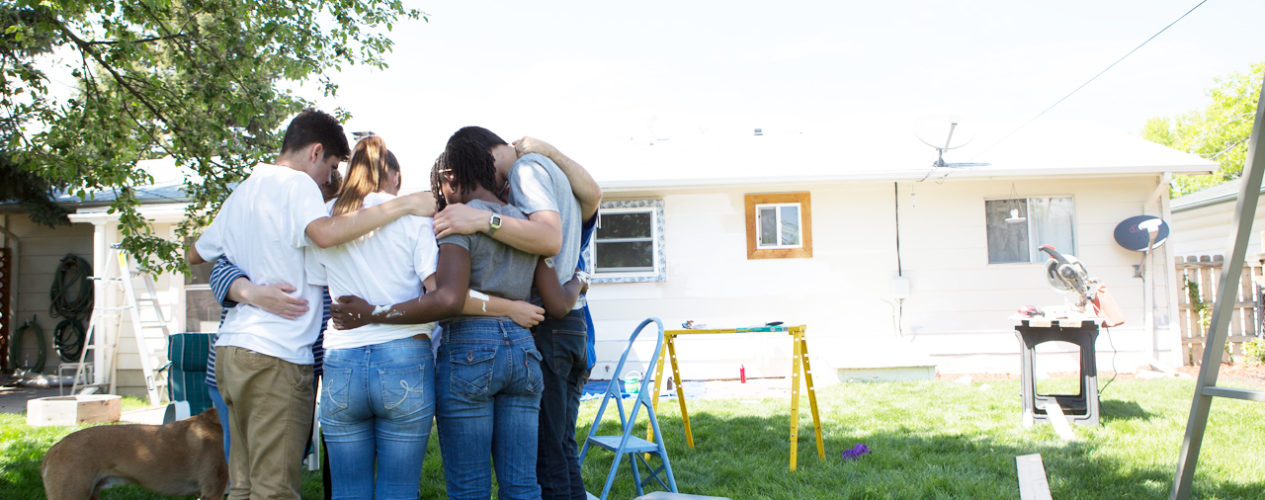At the end of this summer, you want to look back on your missions experiences in awe—the transformation in your teenagers was not only obvious but ongoing. Your kids crushed it; your leaders crushed it; you crushed it!
And then the biggest question… Now what?
If you don’t spend as much time thinking and planning your “After-Mission Trip” strategy as you did thinking and planning the actual trip, you’re missing an opportunity to plant a missional mindset in your teenagers that will reap a lifelong “fruit harvest” for them. To fuel your strategy here’s a peek into our three “filters”…
1. Before the Trip—It may sound counterintuitive, but you can set up your teenagers for some post-trip wins by intentionally planting seeds in them before you leave. In your pre-trip meetings, focus on the selfless nature of life in the Kingdom of God. Focus on things like: “The Kingdom life is the best life you can live.” (If you need a little help with this, check out my student resource 24/7: Living for God In Real Life.) Make the connection that the highlight of the trip is not the destination, but the everyday decisions kids will make while they’re immersed in their mission experience. What you put into a trip is directly related to what you’ll get out of a trip.
2. During the Trip—What will your teenagers experience on the trip, and how can you connect that experience to the other 51 weeks of the year? One question that we ask over and over during our missions experiences is: “Why is this so much fun? You’re working, sweating, sleeping on the floor, eating mystery meals, and you paid good money to be here! Why is this so much fun?” On the last night of the trip, we give kids some context for that question: “You’ve lived this week the way God designed you to live: putting others first, sacrificing to meet the needs of others, and intentionally connecting with others in community. Your amazing week had very little to do with your location; it had almost everything to do with the little choices you made each day to lean into what Jesus was leading you to do.” And one more thing: Take care of yourself. Nothing wears us out physically like a mission experience. Find space for the margin your soul needs along the way—somehow or some way.
[tweet_box design=”default” float=”none”]What you put into a trip is directly related to what you’ll get out of a trip.[/tweet_box]
3. After the Trip—Prepare your parents for a positive, impactful “re-entry” experience with their kids by writing, ahead of time, an email you can send out to them towards the end of your mission experience. Give some general tips on how they can care for their teenagers once they return, and encourage the family to engage in missional activities together. Bonus points if you give them a short list of things they can do. And what are some things you can do once you’re back home to continue plunging your teenagers into “missional moments”? Plan these experiences in advance, so you can share the details with kids at the end of the trip and strike while the iron’s hot. Every group is different, and resources vary widely from church-to-church, but every group can do missional things in their community. Some great ideas for this…
- Serve Saturday. One Saturday a month (or every other month), go clean up a stream or cut a needy neighbor’s lawn, or mulch a flower bed, or jump in to help with projects for your local Habitat for Humanity. If these ideas don’t come naturally to you, get some help! Someone in your circle lives and breathes this stuff.
- Revisit Your Mission Site. If you had an international experience, that may not be possible; but if you took a local or regional trip, you may be able to revisit the community a month or so after your trip to follow-up relationally and see if there’s more work to be done.
Keep the big picture in mind.
Your ultimate goal is not to start a non-profit missions agency. (Unless that is your goal … then just ignore the last sentence.) Your goal is to build a missional mindset in your teenagers. Ask them questions like: “What are the needs you see around you in your neighborhood, school, community, and so on?” “What breaks your heart, and what can you do about it?” Say things like: “You don’t need me to plan missional things to do. You’re as much a leader in the church as I am, and Jesus will nudge you if you pay attention.”
For most of us, connecting the dots with an intentional after-trip strategy is hard. But it’s worth the effort. So take a nap, shave what needs to be shaved, and go live and reveal God’s Kingdom with your teenagers.


